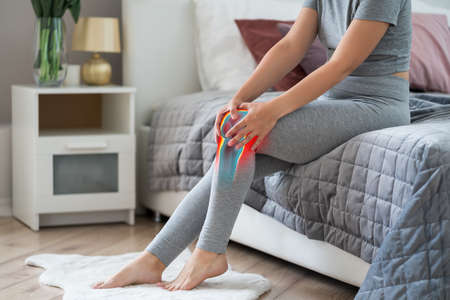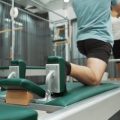Understanding Arthritis in the UK Context
Arthritis is a prevalent and often life-changing condition affecting millions across Britain. According to recent statistics, over 10 million people in the UK are living with some form of arthritis, making it one of the leading causes of pain and disability nationwide. There are several types of arthritis commonly diagnosed here, with osteoarthritis and rheumatoid arthritis being the most widespread. Osteoarthritis, typically linked to ageing and joint wear-and-tear, is particularly common among older adults. Rheumatoid arthritis, an autoimmune disorder, can affect individuals at any age and often leads to significant joint inflammation and discomfort.
The societal impact of arthritis in Britain is substantial. It places a considerable burden on both patients and the NHS, as ongoing management often involves regular GP visits, medication, and sometimes surgical intervention. For many individuals, arthritis can limit daily activities, reduce independence, and contribute to mental health challenges such as anxiety or depression. The economic cost is also noteworthy; the NHS invests billions each year in treating arthritis-related conditions, while employers face increased absenteeism and reduced productivity due to musculoskeletal issues.
Patients in the UK face unique challenges related to timely diagnosis, access to multidisciplinary care, and navigating support services. While there have been improvements in awareness and treatment options, many people still experience delays in receiving appropriate interventions. This landscape underscores the vital role that physiotherapists play—not only in supporting physical recovery but also in empowering patients to manage their condition effectively within the context of the British healthcare system.
2. The Physiotherapist’s Role in Multidisciplinary Care
Physiotherapists play a pivotal role within the multidisciplinary teams supporting arthritis patients throughout Britain. Their collaborative efforts with GPs, rheumatologists, and occupational therapists are fundamental to delivering comprehensive, patient-centred care. This integrated approach ensures that each aspect of an individual’s condition is addressed, from pain management to functional independence and emotional wellbeing.
Collaborating with GPs
General Practitioners (GPs) are often the first point of contact for patients experiencing joint pain or stiffness. Physiotherapists work closely with GPs to develop tailored treatment plans based on the latest clinical guidelines and patient progress. Regular communication helps monitor symptoms, adjust interventions, and ensure timely referrals for further specialist care if needed.
Working Alongside Rheumatologists
Rheumatologists specialise in diagnosing and managing complex forms of arthritis, such as rheumatoid arthritis or psoriatic arthritis. Physiotherapists contribute their expertise in movement analysis and rehabilitation techniques, working in tandem with rheumatologists to optimise medical and physical therapies. This partnership supports patients through medication adjustments and targeted exercise programmes that enhance mobility and joint health.
Partnering with Occupational Therapists
The partnership between physiotherapists and occupational therapists is essential for empowering patients to maintain independence in daily activities. While occupational therapists focus on adapting tasks and environments, physiotherapists design exercise regimes to improve strength, flexibility, and function. Together, they enable arthritis patients to achieve personal goals at home, work, or within the community.
Key Roles Within the Multidisciplinary Team
| Healthcare Professional | Main Responsibilities | Contribution to Arthritis Care |
|---|---|---|
| GP | Initial assessment, ongoing management, referral coordination | Early detection, monitoring progress, holistic oversight |
| Rheumatologist | Diagnosis, medication management, specialist input | Disease-specific expertise, advanced therapies |
| Physiotherapist | Rehabilitation planning, exercise prescription, patient education | Pain relief, improved mobility, long-term functional support |
| Occupational Therapist | Task adaptation, environmental modifications, self-management training | Promoting independence in daily living activities |
A Holistic Approach for Better Outcomes
This collaborative model not only enhances clinical outcomes but also places the patient at the centre of care decisions—a hallmark of British healthcare. By working together seamlessly across disciplines, physiotherapists and their colleagues ensure that every aspect of arthritis recovery is considered, fostering resilience and improved quality of life for people living with arthritis across the UK.

3. Assessment and Personalised Treatment Planning
In the United Kingdom, physiotherapists play a vital role in supporting individuals living with arthritis by carrying out thorough assessments and developing personalised treatment plans. Upon referral, a physiotherapist will typically begin with a comprehensive assessment, which includes a detailed medical history, physical examination, and discussion about the patient’s daily activities, goals, and any specific challenges they face due to arthritis. This holistic approach ensures that each patient’s unique circumstances are understood.
Once the assessment is complete, physiotherapists work collaboratively with patients to set realistic and meaningful goals. These may range from improving joint mobility and muscle strength to enhancing overall functional ability and independence in daily life. In Britain, there is a strong emphasis on shared decision-making, allowing patients to be actively involved in their own care and recovery journey.
Based on the findings of the assessment, physiotherapists design tailored exercise and rehabilitation programmes that take into account the individual’s type and severity of arthritis, lifestyle, and personal preferences. Programmes often include a combination of strengthening exercises, flexibility routines, balance training, and advice on pacing activities to manage fatigue. Patients receive guidance on how to safely perform exercises at home as well as support during follow-up sessions to monitor progress and adjust interventions as needed.
By providing bespoke rehabilitation plans rooted in evidence-based practice and patient-centred care, UK physiotherapists empower individuals with arthritis to regain mobility, reduce pain, and enhance their overall quality of life. This personalised approach not only addresses immediate physical needs but also fosters long-term self-management skills essential for living well with arthritis.
4. Education, Self-Management, and Empowerment
Physiotherapists play a pivotal role in empowering individuals living with arthritis across Britain by providing targeted education and promoting self-management strategies. The aim is not only to support recovery but also to help patients regain control over their everyday lives, fostering confidence and independence.
Educating Patients about Arthritis Management
One of the core responsibilities of physiotherapists is to ensure that patients have a comprehensive understanding of their condition. This involves explaining the nature of arthritis, the impact it may have on joints and mobility, and realistic expectations for progress. Through clear communication—often tailored to each patient’s background—physiotherapists help demystify complex medical terms and create an open space for questions and concerns.
Promoting Self-Care within the British Context
Self-management is essential for long-term success. Physiotherapists offer practical advice on daily routines that align with typical British lifestyles. This includes guidance on pacing activities, managing symptoms during unpredictable weather conditions, and adapting tasks such as gardening or walking the dog, which are common in many UK households.
Examples of Self-Management Techniques
| Technique | Description | British Lifestyle Example |
|---|---|---|
| Joint Protection | Using assistive devices or modifying movements to reduce strain | Choosing ergonomic gardening tools for allotment work |
| Pacing Activities | Balancing activity with rest to prevent flare-ups | Taking regular breaks during countryside walks |
| Pain Management | Applying heat/cold packs or gentle exercise as advised by a physiotherapist | Using a hot water bottle after a chilly evening at home |
| Exercise Prescription | Personalised movement plans to maintain flexibility and strength | Incorporating local leisure centre swimming sessions into weekly routine |
Empowering Patients through Practical Advice
Beyond clinical settings, physiotherapists recognise the importance of adapting advice to suit real-life scenarios. For example, they might suggest ways to make public transport journeys more comfortable or provide tips for managing arthritis at work, in line with UK employment rights and occupational health recommendations.
Conclusion: Building Confidence through Partnership
The education and empowerment provided by physiotherapists enable patients to take an active role in their recovery journey. By respecting cultural nuances and daily realities unique to Britain, physiotherapists ensure that advice is both practical and achievable—helping people with arthritis move forward with greater confidence and autonomy.
5. Community-Based Support and NHS Resources
Physiotherapists in Britain play a vital role not only within clinical settings but also as connectors to wider community-based support networks and NHS resources. For individuals living with arthritis, these connections can significantly enhance recovery and long-term wellbeing.
Local Support Groups
Across the UK, numerous local support groups offer a safe space for people with arthritis to share experiences, gain emotional support, and access practical advice. Physiotherapists often signpost patients to these groups, recognising the value of peer encouragement and shared learning. Whether through national charities like Versus Arthritis or smaller community initiatives, these gatherings foster a sense of belonging and empowerment.
NHS Pathways for Ongoing Care
The NHS provides a range of structured care pathways for arthritis management, from initial GP consultations to specialist rheumatology clinics and ongoing physiotherapy services. Physiotherapists are instrumental in guiding patients through these pathways, ensuring timely referrals and helping individuals understand the options available within the NHS system. This coordinated approach helps streamline care and reduces confusion at what can be a stressful time.
Community Resources and Signposting Services
Beyond healthcare facilities, physiotherapists often connect patients with community resources such as exercise classes tailored for arthritis, educational workshops, accessible leisure centres, and mobility aid services. They may also recommend local walking groups or gentle yoga sessions that encourage regular movement in a supportive environment. By signposting to these services across Britain, physiotherapists help patients maintain independence and stay active in their communities.
Accessible Information and Ongoing Support
Ensuring patients have access to clear information is another key responsibility. Physiotherapists frequently provide leaflets, online resources, or direct patients to reputable websites like the NHS or national arthritis organisations. This empowers patients to make informed decisions about their care and feel supported every step of the way.
Collaborative Approach
Ultimately, by integrating NHS services with local community support, physiotherapists in Britain create a holistic network around each patient. This collaborative approach not only addresses physical needs but also considers emotional wellbeing and social inclusion—fundamental components of successful arthritis recovery.
6. Challenges and Innovations in Arthritis Rehabilitation
Despite the vital role physiotherapists play in supporting arthritis recovery across Britain, several challenges persist within the healthcare landscape. One of the most significant hurdles is the increasing demand for physiotherapy services, which has led to longer waiting times for NHS appointments. This delay can affect patients’ access to early intervention, potentially impacting their long-term outcomes and quality of life.
In response to these challenges, UK physiotherapists are embracing innovative approaches to enhance accessibility and continuity of care. Digital health solutions, such as online exercise programmes and mobile applications tailored for arthritis management, enable patients to engage in guided rehabilitation from the comfort of their own homes. These tools often provide instructional videos, progress tracking, and personalised feedback, empowering individuals to take an active role in their recovery.
Telerehabilitation has also become increasingly prominent, especially following the COVID-19 pandemic. Through secure video consultations, physiotherapists can assess movement, demonstrate exercises, and monitor patient progress remotely. This approach not only reduces travel barriers—particularly valuable for those living in rural areas or with mobility limitations—but also allows for more frequent check-ins and timely adjustments to treatment plans.
Moreover, some physiotherapy teams are piloting group-based virtual sessions and interactive webinars focused on self-management strategies for arthritis. These innovations foster a sense of community and provide peer support, which can be particularly motivating for individuals managing chronic conditions.
While these advancements offer promising solutions, it is important to address digital literacy and ensure equitable access to technology across diverse populations. Physiotherapists continue to advocate for resources that bridge these gaps, ensuring all patients benefit from modern rehabilitation methods regardless of age or background.
Ultimately, by tackling current challenges head-on and embracing new technologies, UK physiotherapists are well positioned to deliver effective, patient-centred care that supports long-term arthritis recovery throughout Britain.


